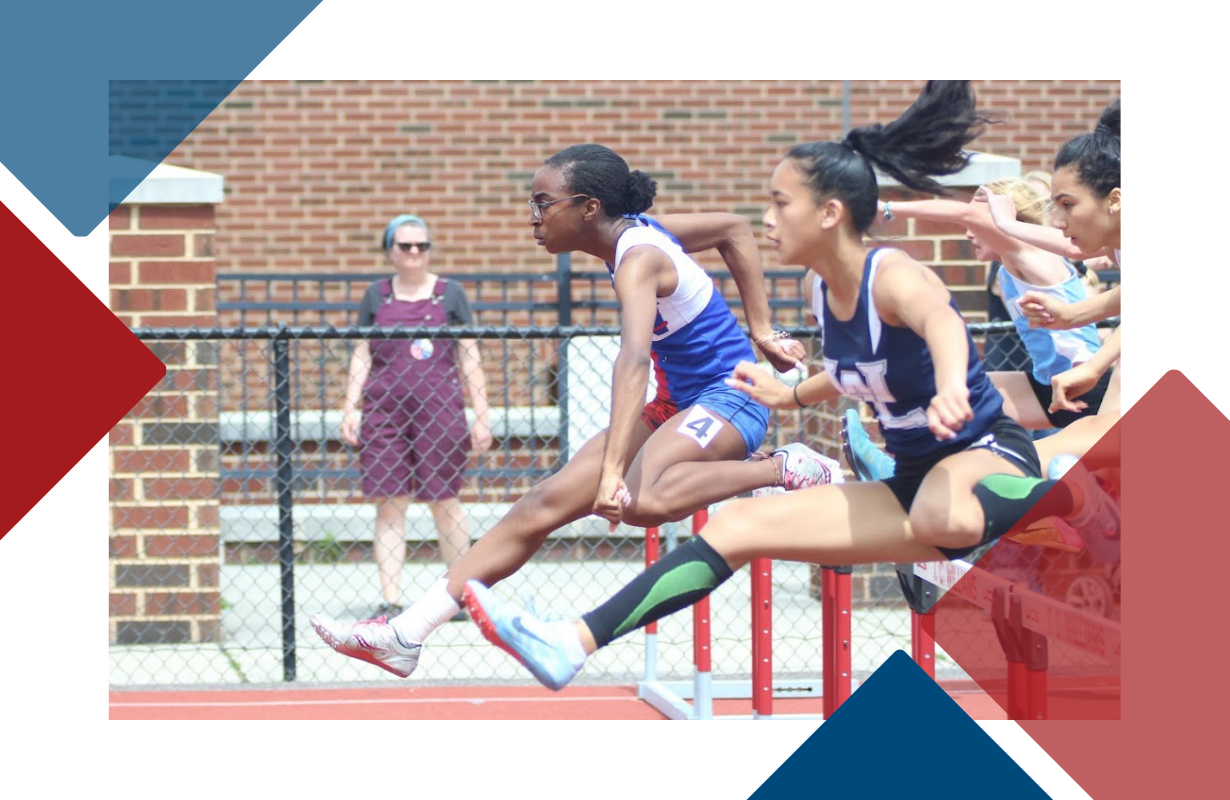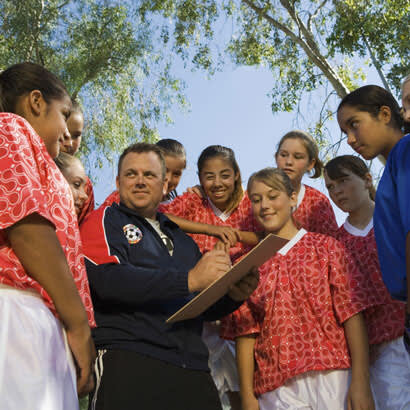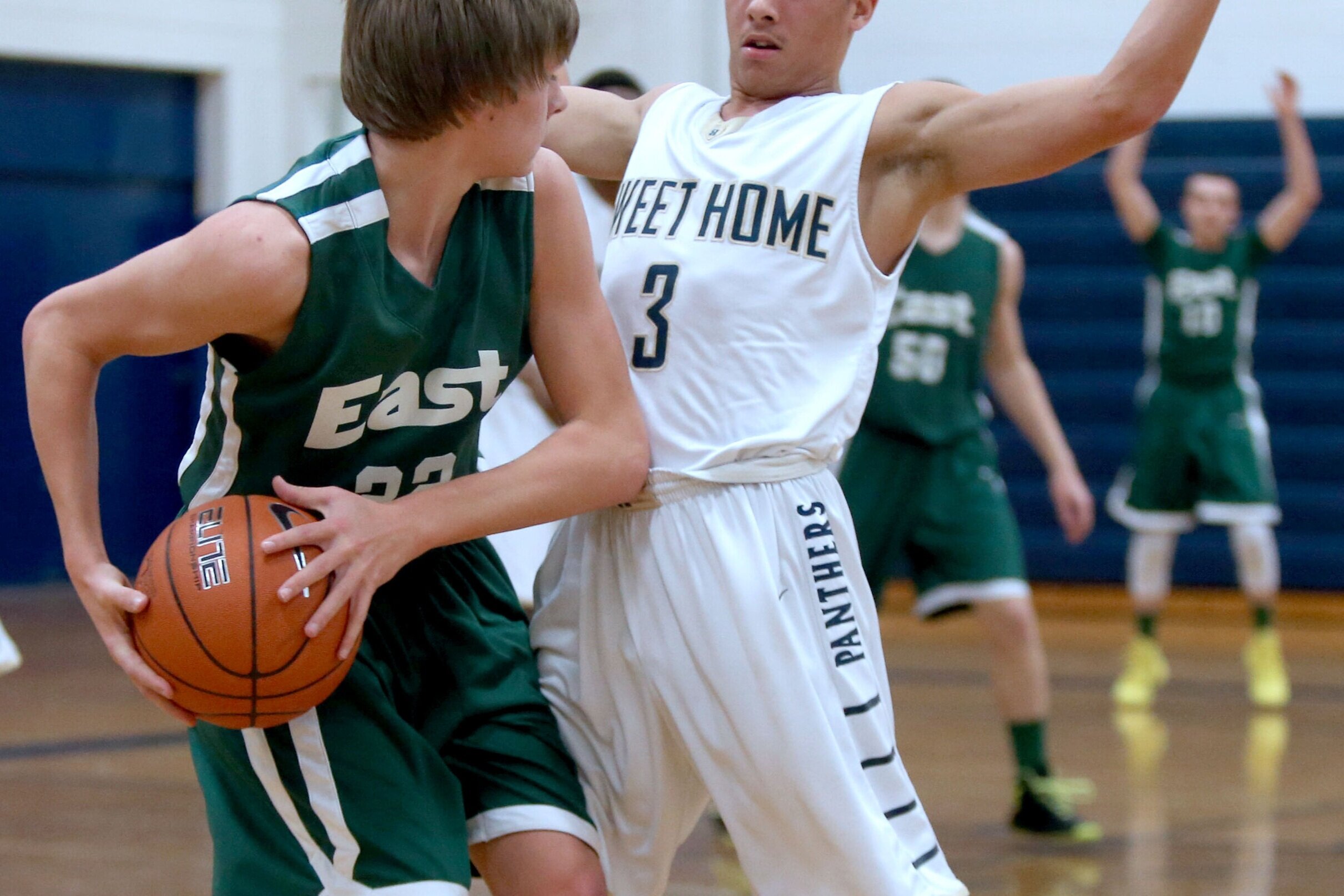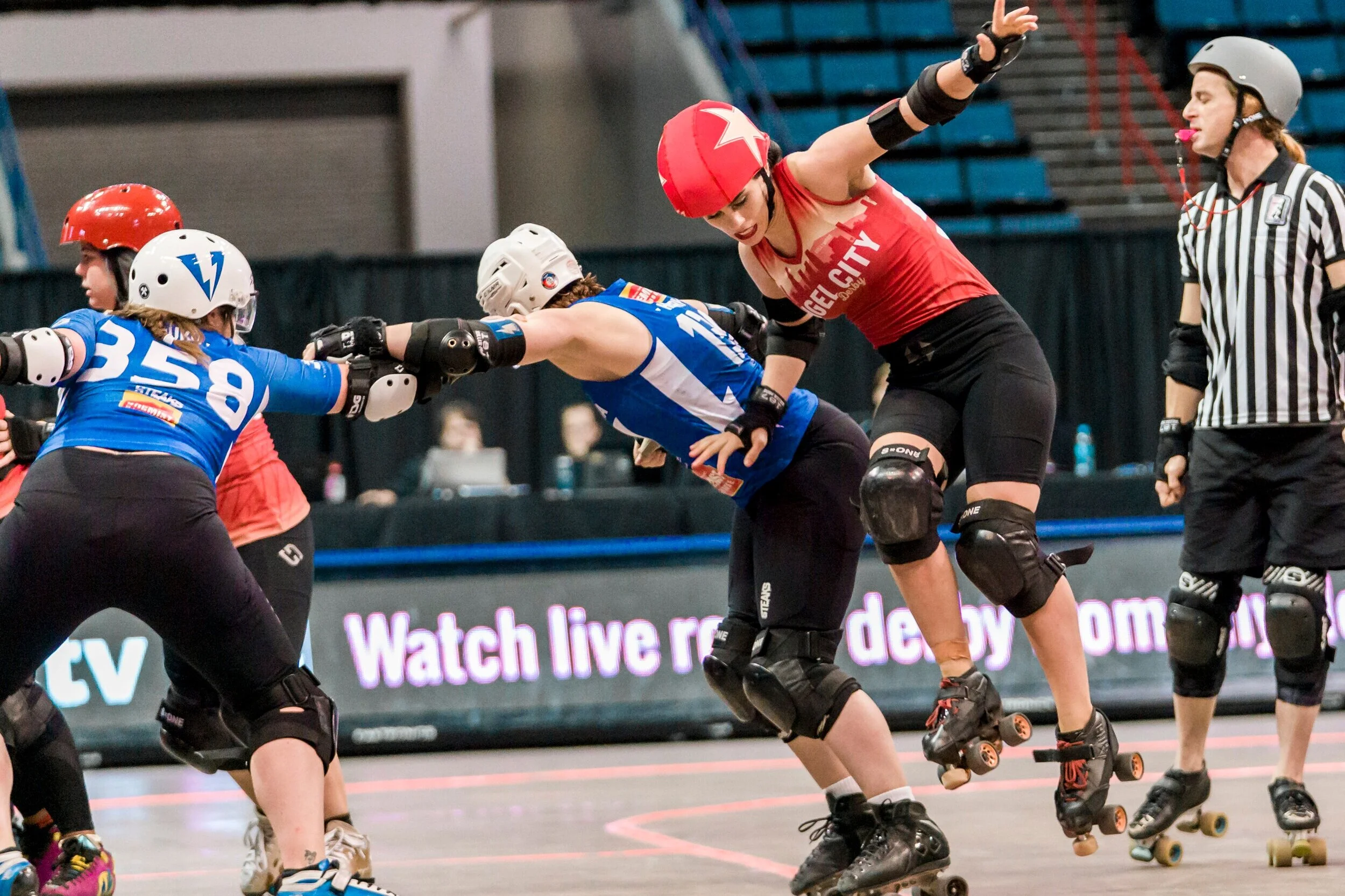As youth sports start to return in some communities, there’s an entire population not receiving much consideration yet: sports officials. They’re the referees and umpires who are necessary for kids to actually play organized games.
Even before the coronavirus pandemic, there was a national shortage of officials. The average age of a starting official in 1976 was 20 years old; by 2016, it was 42. There are more officials over 60 than under 30 in what’s become a graying industry. In high school sports, 80% of officials quit before their third year, according to the National Federation of State High School Associations, which is offering free officiating training during the shutdown.
Will there be enough officials when games return? What safety precautions are needed for officials? How might officiating have to evolve, such as perhaps not even blowing a whistle so as not to risk spreading the virus? The Aspen Institute’s Project Play discussed these topics and more with Barry Mano, founder and president of the National Association of Sports Officials, which has 27,000 members across the country.
What are you telling officials who are returning now about safety?
Barry Mano
Mano: “We don’t know yet (what to tell them), but we know we’re going to be expected to say something and we’re putting that together as we speak. Our members are contacting us and saying, ‘They’re going to reinitiate this sports program, do you have any advice?’ Right now, all we can say is you need to go by what the local community health standard is. Beyond that, we want to think about additional things. Can you imagine the plate umpire right behind the catcher literally six inches away? How does that work with social distancing?”
There are some baseball leagues resuming that put the umpire behind the pitcher’s mound.
Mano: “There are a lot of umpires who would not be interested in that. It’s a more dangerous position (to get hit by balls) and that’s not how they want to work baseball. I don’t think people are even thinking about that. There are umpires who will say, ‘No, I’m going to sit this out until it gets back to the new normal.’”
On what basis do you think youth sports officials will want to agree to go back to work?
Mano: “That’s a key question. As an example, USA Volleyball just announced it’s going to resume holding competitions in another week or so and there are some new guidelines with respect to health and safety, such as disinfectant on the ball between each game. The question we have is who do you expect to do that? Us?
“The other theme percolating that’s been reported in the media is since budgets have become decimated, maybe it’s good for sports officials to work for nothing. I know that in Florida they’ve asked football officials, when those games get going again, to work for a reduced fee. It sort of rankles me (that) this early on that’s something that would be brought up.
“We believe in the shared burden. It isn’t that referees are exempt. We get it. But not if the request is disrespectful. From our standpoint, we’re going back and providing the exact same service under more trying conditions and now we don’t get paid?”
Is there any way for officials to take on safety duties?
Mano: “The answer is hell no. When a player gets injured, we need to observe and refer. We’re not in the medical business. Don’t just keep loading this stuff on us because we’re not trained, we don’t want to be trained in that area, and you’re not paying us enough to be trained in that area. These are the things we want organizations to be thinking about.
“When USA Volleyball sent out these (return to play) guidelines, our volleyball editor read it and had like 32 questions from an officiating standpoint. There are volleyball refs saying, ‘We’re not going, we won’t do it.’ That has to play out. It’s going to be very interesting to see what kind of confidence officials have in the organizers.
“Officials are not even being addressed in the return of youth sports. I understand administrators have their hands full. We will too. We’re lobbying organizations to make sure they answer some questions as simple as who disinfects balls between games. Just let the chair umpire do it? Maybe you need to hire somebody to be the safety officer.”
Speaking of volleyball, the AAU last week announced that it planned to go ahead with its junior volleyball championships in June (the event was postponed days later until mid-July after 70% of teams pulled out). That’s an event that usually attracts 15,000 athletes, coaches and parents from 34 states converging on Orlando. How does the officiating community view a major travel event like that?
Mano: “It’s kind of hard to believe. I was talking to a referee who said, ‘You’re going to do what? You’re going to have 15,000 people come together on what basis? What are you expecting us to do as the referees?’
Are there changes in how officiating may occur in order to reduce the risk of spreading the virus?
Mano: “There is widespread talk about the risks of doing something as simple as referees blowing into whistles. For basketball or wrestling or any sport with close contact and physicality, referees are breathing hard and blowing a whistle. If you take a time lapse of a ref blowing a whistle, you’ll see minor spray coming out. That’s exactly what you don’t want.
“Now there’s a conversation of only using hand-electronic whistles. Boy, that would be a sea change. It might happen. When you see a foul, you press a thing in your hand and it makes the noise through the system in the arena or the gym or outside.”
How many of these hand-electronic whistles are there for the officiating community?
Mano: “Not enough. We don’t have an inventory number. We know they have been tried in different places. The manufacturing of them would have to ramp up big time. You’d have to have a company like Fox 40 International in Canada, which makes the Fox 40 whistle that’s the gold standard in officiating, switch up and make electronics.”
Does the NASO support officials wearing masks when they return?
Mano: “We’re thinking about that. Are you able to do your job and breathe? I think the short answer is, if that’s what the standard is, yes, we’ll wear masks. That might mean certain people will say they can’t officiate that way or they can’t because of breathing problems. I was a basketball referee for 23 years. You can’t referee a basketball game with a mask on. It’s intensive work, running up and down the court.”
You have an older population who officiates. Does that concern you?
Mano: “Of course. There are a lot of people who officiate in that older category who could have underlying conditions that can be dangerous (due to COVID-19).”
For instance, the United States Sports Specialty Association return to play guidelines for soccer says that “players must always keep proper social distance from referees.” How does that practically happen with players constantly in motion and officials trying to keep up?
Mano: “You’re just going to minimize those excursions. That’s all you can do. Like when you go in a store now with a mask, you find yourself purposefully taking a couple steps away when you see someone coming. The referees would do the same thing. It’s fraught with potential danger. That’s why we want to ensure sports officials are put in a relatively safe environment. There’s always going to be some risk when people get back together before there’s a vaccine, and you won’t see a vaccine for sure until at least 2021.”
There already was an officiating shortage even before the pandemic. What do you think future recruitment looks like and will there be enough officials for the huge volume of games?
Mano: “Historically, one thing is clear: When you have a downturn in the economy, that leads to more people coming into officiating. You’re looking for a source of income. We would expect an uptick in officials, but you can’t say it blindly because of the COVID overlay.
“The second point is there’s an avalanche that’s coming. All of these games are cancelled. Once the reins are loosened, instead of one game a day, organizers are going to try to play three or four games a day to catch up on seasons. There are companies and individuals that make their living assigning sports officials. Well over a billion dollars of game fees are gone since March. Organizations are going to need these assigners to find warm bodies. In college football, they’re talking about assigning people regionally to cut down on air travel. That would lead to something very unique for us: Not working with the same crew all season. I think you’re going to see this at the lower levels too, like at high schools.
“I think there’s going to be a great economic opportunity for people wiling to officiate. But at the end of the day, there’s going to be a real shortage and scheduling snafus. It’s going to be jammed like the freeways in Los Angeles at 6 o’clock at night.”
So, who do you think ends up choosing to officiate right away?
Mano: “It’s going to mirror exactly how we are in the general population. You see it already. You see people protesting (to reopen businesses) and others saying, ‘You’re nuts.’ I think you’ll have the very same distributions. Some referees will go out there and say, ‘I don’t need a mask, a lot of this is BS, and let’s go,’ and others will weigh on the side of safety.
“We’re hearing even a little bit, and I don’t want this overblown, some officials saying, ‘We should get hazardous duty pay.’ Intellectually, you can’t argue with that since we’re putting these officials in riskier positions. But there are very few outliers to even bring that up, but it has been brought up. We’re already preaching to all officials, ‘You have to adhere to the community health standard first and foremost. They’re driving the ship.’ Beyond that, it’s a very personal decision.”
Is it easier or harder for officials to return to youth sports compared to college or pro sports?
Mano: “There’s much more opportunity at the youth level, but I would think it’s harder to come back there because of the looseness of a lot of youth sports. They’ve gotten better but haven’t gotten better enough through the years with security issues. We get calls every week here regarding physical assaults and invariably 80% are at the youth and club level. They’re not at the high school or college level. We really need youth sports officiating to be more professionalized.”
Do you have a topic that you would like Project Play to explore in future COVID-19 youth sports coverage? Email Jon Solomon at jon.solomon@aspeninstitute.org.






















